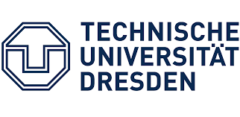Projekt
Co-design of ecologically and economically efficient policy instruments and measures for the conservation of biodiversity and ecosystem services in cultural landscapes
The loss of biodiversity is particularly high in today’s intensively farmed cultural landscapes. More than 50% of Germany’s land is used for agriculture. There are already various policy instruments and measures for these areas that have a demonstrably positive impact on biodiversity. Despite some partial successes, however, there is a lack of comprehensive implementation of biodiversity conservation measures, especially those that achieve positive effects not only on individual fields, but also on the landscape level as a whole. This is often due to practical hurdles in the implementation of measures, a lack of acceptance among farmers (for example due to a lack of flexibility) and insufficient integration of ecological and economic concerns. In addition, there are technical and logistical challenges in assessing the impact of certain measures on biodiversity and thus being able to make concrete recommendations for the best possible spatial distribution.
ECO²SCAPE therefore develops and tests new approaches and measures for the conservation of biodiversity and ecosystem services in a co-design process. The measures to be developed focus on the role of farmers in landscape conservation and the preservation of structurally rich cultural landscapes (beyond the production of agricultural products) and aim to achieve the broadest possible acceptance. Agriculture is therefore actively involved, as are other interest groups that help shape land use. These include, for example, political decision-makers in the region, (nature conservation) authorities, the regional farmers’ association, other associations and many more. The project is about recognizing, understanding and – if possible – reconciling different interests. The common basis for this is the conscious appreciation of biodiversity and the associated benefits for all.
The ECO²SCAPE model region is located in northwest Saxony between the towns of Eilenburg and Bad Düben. A part of the agricultural land there is used intensively, but in very different ways. The floodplain area near the river is mainly used for grazing, while the surrounding arable land is mainly used for growing fodder and cereals. However, forestry and tourism also play a role. These different uses make the Mulde river a good model region for investigating various biodiversity conservation measures and research approaches. At the same time, it is comparable with numerous cultural landscapes in Germany, to which such research results will then be transferable. Specifically, the three biosphere reserves, the Oberlausitzer Heide- und Teichlandschaft, Schaalsee, and Schorfheide-Chorin were selected, with which the transferability and connectivity of the measures, concepts and methods developed in the project will be discussed and partially tested.
To monitor biodiversity, an automated and improved method for recognizing bird calls is being developed and a standardized recording of plant species is being carried out. Spatial models are used to quantify the ecological and economic efficiency of agricultural measures on biodiversity and ecosystem services (climate and water quality regulation) and to determine the optimal allocation of measures in the landscape context. In addition, the values and role perceptions of different interest groups are analyzed in an intensive exchange with various stakeholders and solutions are developed in order to establish result-oriented and cooperative measures within the framework of existing policy instruments and to open up alternative financing options for the implementation of measures.
The ECO²SCAPE consortium consists of the TU Dresden, the BTU Cottbus-Senftenberg, the Leibniz Centre for Agricultural Landscape Research e.V. and the two practice partners Landschaftspflegeverband Nordwestsachsen e.V. and Nationale Naturlandschaften e.V. The underlying innovative, systemic and transdisciplinary research approach combines current methods from the fields of agricultural sociology, political science, ecoacoustics, machine learning, landscape ecology, environmental economics and ecological-economic optimization.
Further information can be found on the TU Dresden project website and in an interview with the project coordinator Prof. Dr. Anna Cord (available only in German).


